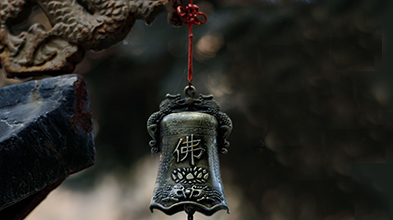Wisdom from Chinese Literary and Buddhist Classics
365 Days for Travelers
9/12: THE SIGNIFICANCE OF OBSERVING PRECEPTS
Venerable Master Hsing Yun (1927 - , Fo Guang Shan)English translation: Zhi Yue and Siew-Hsiang Chow
To observe precepts is to have true freedom as a result of not harming others. To take and uphold the precepts is to refrain from infringing upon others’ rights, protecting everyone’s lives, wealth, families, and careers as a result. Killing, stealing, having sexual misconduct, lying, and taking intoxicants are the opposite of the precepts; these actions harm others and also result in our own loss of freedom by ending up in jail. Therefore, observing precepts truly results in:
1. Freedom for all,
for both oneself and others.
2. Safety for all,
for both oneself and others.
3. Happiness for all,
for both oneself and others.
4. Wholesomeness for all,
for both oneself and others.
5. Benefit for all,
for both oneself and others.
6. Liberation for all,
for both oneself and others.
── from Renjian Fojiao Xilie
(Humanistic Buddhism Series)
and others
What's New?
SEPTEMBER

Humble Table, Wise Fare
INSPIRATION
Recorded by Leann Moore
The decayed scab should be removed,
so that new flesh can grow;
bad habits should also be removed,
so that one can cultivate virtue.

Dharma Instruments
Venerable Master Hsing Yun grants voices to the objects of daily monastic life to tell their stories in this collection of first-person narratives.

Sutras Chanting
The Medicine Buddha SutraMedicine Buddha, the Buddha of healing in Chinese Buddhism, is believed to cure all suffering (both physical and mental) of sentient beings. The Medicine Buddha Sutra is commonly chanted and recited in Buddhist monasteries, and the Medicine Buddha’s twelve great vows are widely praised.

Newsletter
What is happening at Hsingyun.org this month? Send us your email, and we will make sure you never miss a thing!





